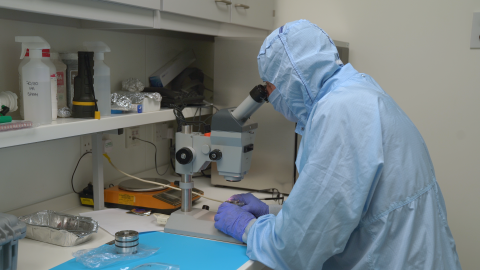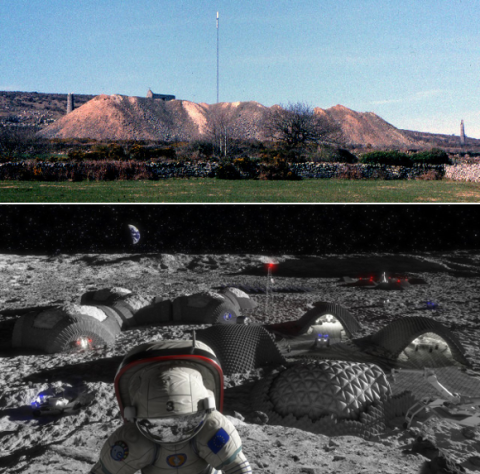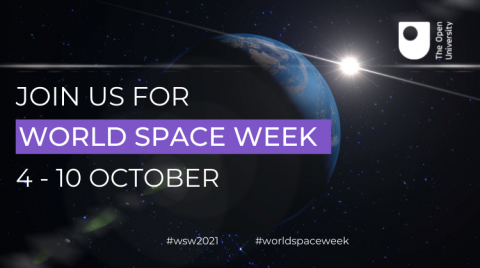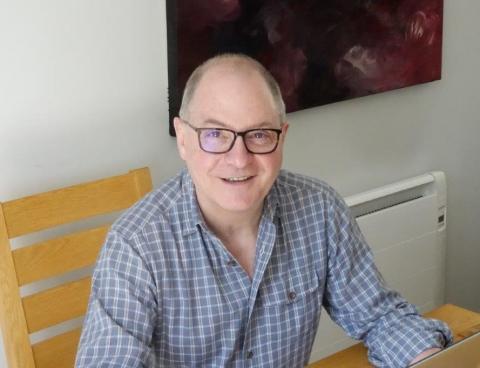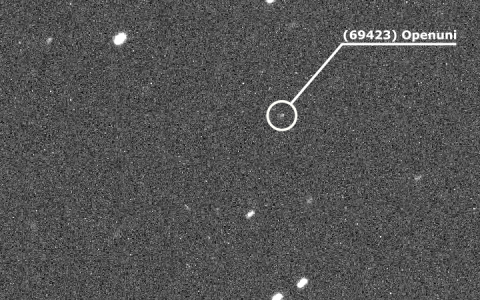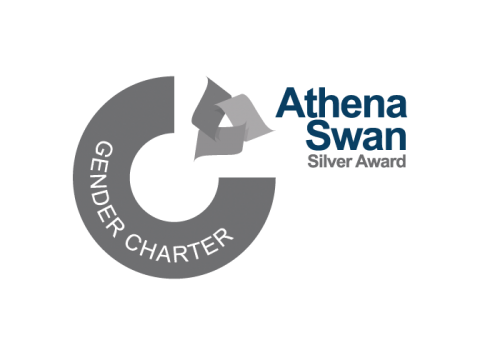News
Asteroids: Sometimes good, sometimes bad – always amazing
Asteroids often get a bad press. Not surprising really as scientists think that a 10 km wide space rock that hit Earth 66 million years ago was responsible for the extinction of the dinosaurs, and lots of other species too. And as portrayed in the popular TV show Don’t Look Up there is always the chance that it could happen again, with potentially devastating results for mankind.
Just one more thing to worry about? Well there is another side to asteroids.
5 Big Questions About the Universe
Last year, the BBC broadcast “The Universe” TV series, which several SPS Astronomy staff were academic consultants for. As a spin-off from that, Professor Andrew Norton helped the OU Broadcast unit make a “BBC ideas” film called “How big is our Universe?”
Application of Space Resources Research for Mining Waste Remediation
OU researchers Dr Richard Windmill and Prof Mahesh Anand have obtained SPRINT funding for a project investigating synergies between SPS’s world leading in situ resource utilisation (ISRU) research and terrestrial mine waste remediation and remining. This project will commence in January 2022 in collaboration with X-ray Mineral Services Ltd, a company based in North Wales who are active in tailings remediation and remining.
Lighting it Up: The Physics of Imaging Space
The School of Physical Sciences (SPS) Outreach and Public Engagement (OPE) team have spent the last year working with SPS researchers to produce a new film about the science of imaging in space. The project called ‘Lighting it Up: The Physics of Space Imaging’, looks at how camera sensors are designed and tested so that they can be used for applications in space; from imaging the surfaces of planets in high resolution, to taking pictures of stars in far-off galaxies.
World Space Week at the OU
We are running a number of online panel events in World Space Week open to everyone. You can find out more on the links below, where you can sign-up for a place on Eventbrite. All events are free and open to the public. The events on Thursday 7th Oct and Friday 8th October are aimed at schools (upper level of primary).
Celebrations for three Open University Astronomy & Planetary Science students
Each year the OU awards a prize to the top performing student(s) in level 2 Astronomy (S284) and level 2 Planetary Science (S283), funded by a gift bequeathed by Eric Tomney, an OU graduate and life-long learner, who was also an enthusiastic astronomer.
Asteroid is officially named after The Open University
Academics in the School of Physical Sciences are celebrating after learning that an asteroid situated more than 126 million miles from Earth has finally been named after The Open University.
Two years ago, professors Simon Green and Andrew Norton set out to name asteroid number 69423 ‘Openuni’ in celebration of the 50th anniversary of the OU’s creation on 23 April 1969.
Athena Swan Silver award for SPS
We're delighted to announce that we have been successful in the renewal of SPS' Athena Swan Silver award. This recognises both our sustained commitment to making the School a more inclusive place for all staff and students, and the changes we have made over several years to support the careers and development of women in STEM.
Spacescapes Exhibition - Geological Society 'Year of Space'
The Spacescapes exhibition is part of the ‘Year of Space’, a series of events run by the Geological Society of London and ongoing throughout 2021. Professor Matt Balme and Professor David Rothery, both members of the Planetary Environments research group in the Open University School of Physical Sciences, are members of the Year of Space steering committee helping the Geological Society organise these events.
60 second adventures in Artificial Intelligence
Colleagues within the School of Physical Sciences have been involved in the production of a new set of 60 second adventures centred around the theme of Artificial Intelligence. The new set of four videos were sponsored by the ESCAPE H2020 project (projectescape.eu) and they are designed as an overview of how various machine learning techniques work and how they can be used in some astrophysical contexts.
